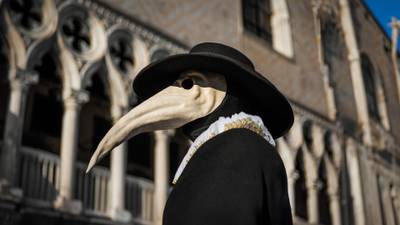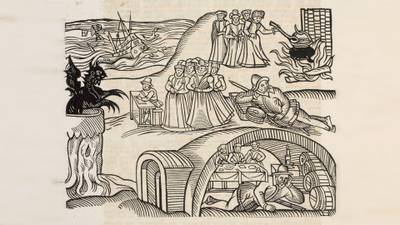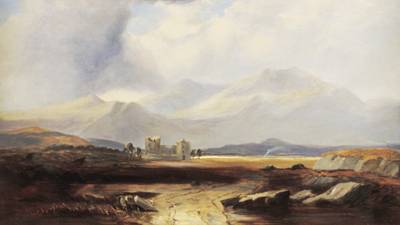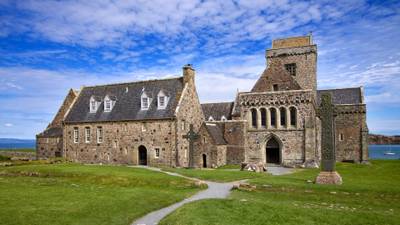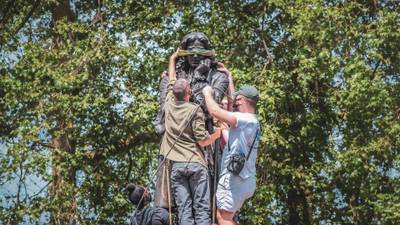Learn to conduct your own research using archives and library collections.
- Explore the remarkable Special Collections and Museum Collections of the University of Aberdeen.
- Investigate the Aberdeen City and Shire Archives to hone your skills.
- Find out how to access online materials relevant to your research, how archives are structured and gain training in family history research.
You’ll learn to address issues you might encounter using overseas archives and develop your transcription skills.
Under the expert guidance of award-winning online tutors, you’ll ready yourself to conduct research in archives at home and abroad.

Build credits towards a Masters degree
This online course is part of:
You can use the credits you earn on this short course towards this MLitt qualification.
What you’ll study
You’ll study the key skills required to conduct research in archival and library collections at graduate level.
You’ll cover the following modules on your course:
- What is an archive? Local resources.
- What is an archive? Scotland, the UK and overseas.
- The museum sector: object-led research.
- Speaking the word: using oral testimony.
- The young, the poor and the sick: using education, welfare and health records.
- Family history research: identifying the sources.
- Family history research: deploying the sources.
- Medieval archives & sources: Aberdeen Burgh Records.
- Palaeography.
- Reading the rural landscape: The Bennachie Landscapes project.
- Reading the landscape of conflict: Aberdeen at war.
By the end of this course, you’ll be able to…
-
Handle manuscript and printed archival materials.
-
Navigate a variety of cataloguing systems to find relevant sources.
-
Appreciate the role of archival research in scholarly work.
-
Describe the ethical issues around accessing and using sensitive materials.
-
Carry out some transcription of manuscript material.
-
Use archival sources in researching and writing a dissertation.
Choose the University of Aberdeen for archival studies and research training
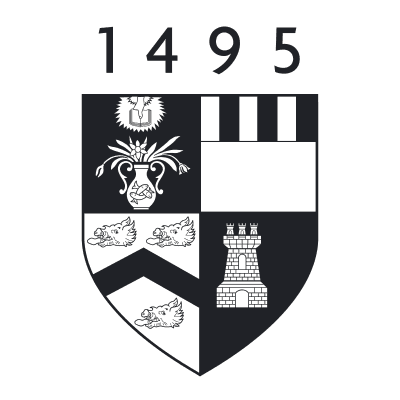
Over 525 years of excellence
Study with the fifth-oldest university in the English-speaking world, founded in 1495.
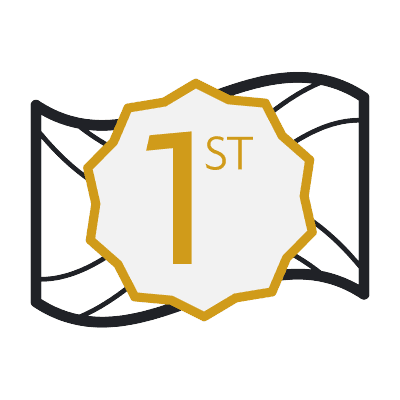
1st in Scotland for History
Our History Department is rated 1st in Scotland and 8th in the UK for teaching satisfaction in the Guardian University Guide 2024.

Award-winning online teaching
Course coordinator, Marjory Harper, holds a Postgraduate Award for Excellence in Teaching for inspirational and online teaching.
How you’ll study
Online learning
This distance learning archival research course is delivered flexibly, 100% online.
You can learn with us anywhere, no student visa required, and manage your study hours to suit you.
Your teaching
The course is taught at Masters level.
Teaching is delivered through MyAberdeen, our online Virtual Learning Environment (VLE). It holds all the materials, tools and support you’ll need in your studies. Take a look around MyAberdeen.
You can access your learning materials on computer, smartphone and laptop, 24 hours a day. You’ll find a range of online resources available, including:
- lectures
- videos and audio clips
- quizzes
- reading materials
- discussion boards with your tutors and peers
- online access to our award-winning Sir Duncan Rice Library.
Archive access
You’ll enjoy access to a rich stream of written, visual and oral source materials from within the University and across Scottish archives.
You’ll have online access to our remarkable Special Collections, Museum Collections and Sir Duncan Rice Library. Here you’ll explore ancient Scottish records, manuscripts, prints, photographs and literary collections of leading Scottish writers and poets. Treasures include a large Jacobite collection, works of the Scottish Enlightenment, and one of the best collections of Sir Walter Scott’s work.
Your tutors
This course is delivered by our School of Divinity, History, Philosophy and Art History.
You’ll learn from experienced researchers and academics from our History and History of Art departments.
You’ll be assessed entirely online via:
- a 1,500-word parish source survey (worth 40% of your final mark), and
- a 3,000-word essay (60% of your final mark).
The parish source survey can relate to any Scottish parish of your choice and help you research your own family history.
This course totals approximately 300 hours of study and assessment time.
That’s around 15 – 20 hours per week in regular topic work and independent study, with more time required around assessments.
This is an indicative guide to the time required for a typical student at this level to achieve the learning outcomes. This includes time for independent study, as well as teaching and assessments.
You can largely set your own study hours to cover the materials. MyAberdeen is available 24/7, so you can log in and study when it suits you.
Activities at fixed times
There may be some activities scheduled at fixed times, such as online meetings with your tutor or assessments with deadlines. But otherwise, you can access and work through the course at your convenience.
Our first-class support structure will ensure that you aren’t alone in your studies. You’ll have contact with your course coordinator throughout your course. This could be by email, MyAberdeen, online call, or phone. You can use social media and discussion boards to chat with your fellow students too.
We provide a wide range of services to support you in your studies and beyond:
- Careers and Employability Service
- Disability support
- IT support
- Library support
- Student Support Service – help with finances, stress, wellbeing and non-academic issues
- Student Learning Service – study support, with advice sessions available via phone or Skype
- Aberdeen University Students’ Association (AUSA) – run by students for students
- Toolkit – clever apps and free training that can make your study life easier
Wherever you are in the world, you’ll feel part of our very special Aberdeen learning community.

Your course coordinator
Professor Marjory Harper is a Professor of History. She’s travelled the world researching Scottish emigration.
Her work in this field has led to appearances on BBC Radio 4 and Radio Scotland and a Saltire Scottish History Book of the Year award. Listen to Marjory on BBC Radio 4.
Marjory holds an Excellence in Teaching award for her innovative and supportive online teaching.
Where this will take you
Towards a Masters degree
You’ll earn 30 credits at Masters level (SCQF Level 11) with this course. You can use these credits towards our:

Masters in Scottish Heritage
Explore the rich history, art and philosophy of Scotland and its people. Access rare archive treasures and award-winning online teaching, with this flexible online Masters.
View MLitt Scottish HeritageBuild your learning
Continue to develop your archival skills, knowledge of Scottish history, and postgraduate university credits, with our growing range of online short courses:
- Jacobite Scotland: Cultures, Identities, Legacies 1688-1830
- Pandemics and Plagues: History’s Deadliest Diseases
- Scotland: A Millennium of History
- Scottish Church History: From Columba to Graham
- Scottish Visual History
- Scottish Witch-Hunting and the Rise of a Protestant Culture 1590-1690
- The Philosophy of the Scottish Enlightenment
- The Scottish Diaspora
Careers
Whatever your industry, you’ll gain career-enhancing skills and expertise on this course.
Continuing Professional Development (CPD)
Your employer or professional institute may recognise this course for CPD hours. Talk to your employer or institute to find out more.

Free career support
Access our free careers service while you study.
- 1:1 appointments
- CV checks
- Interview prep
- Job opportunities
Entry requirements
Entry requirements
We welcome students from all over the world.
This course has no formal entry requirements. You do not need to provide proof of your qualifications.
But you do need to check the entry guidance above to understand the level of teaching delivered, to decide if this course is right for you.
If you do not have qualifications from the UK, check the equivalent teaching level for your country.
Visa requirements
You do not need a student visa to study online with us.
English language requirements
Teaching is delivered in English.
You do not have to provide proof of your English language skills to join this course. But we want to make sure that you can use English well enough to study successfully.
Recommended level of English
This course uses our Postgraduate Higher level of English language proficiency.
These are our Postgraduate Higher requirements, and these are minimum scores.
IELTS Academic, IELTS UKVI Academic, and IELTS Online (not IELTS Indicator or IELTS General Training)
- 6.5 overall
- 5.5 for listening and speaking
- 6.0 for reading and writing
TOEFL iBT and TOEFL iBT Home Edition
- 90 overall
- 17 for listening
- 21 for reading
- 20 for speaking
- 21 for writing
- TOEFL DI code is 0818
Cambridge English: B2 First, C1 Advanced, or C2 Proficiency
- 176 overall
- 162 for listening and speaking
- 169 for reading and writing
LanguageCert Academic/LanguageCert Academic SELT
- 70 overall
- 60 for listening and speaking
- 65 for reading and writing
LanguageCert International ESOL B2 Communicator (Written and Spoken) – Online / In-centre
- Overall High Pass
- 33 for listening, reading and speaking
- 38 for writing
Oxford ELLT Digital – English Language Level Test Online
- 7.0 overall
- 5.0 for listening and speaking
- 6.0 for reading and writing
PTE Academic (online test not accepted)
- 62 overall
- 59 for listening, reading, speaking and writing
Duolingo – tests taken from 1 July 2024 onward
- 120 overall
- 95 for listening and speaking
- 105 for reading and writing
University of Aberdeen English Pre-sessional Programme (PSE)
- Pass
- Valid for one year. Refresher can be offered if out of date
Pre-sessional academic English preparation programmes undertaken at other UK universities
- Pass at an equivalent of 6.5 (C1)
- B2 in all four skills
- Certification must be within one year prior to the start of your course
For more information about language qualifications see our English Language Requirements page.
You will need access to:
A computer (PC, laptop or Mac) operating on either:
- Windows 10 or later
- macOS 10.15 (Catalina) or later.
Most teaching materials are smartphone- and tablet-friendly. But we recommend a proper laptop or desktop for completing assignments comfortably.
Reliable internet access
We recommend:
- a wired connection
- a minimum download speed of 2 Mbps so you can take part fully in live sessions.
Speakers or headphones
- We recommend a headset with built-in microphone and earphones if you’re likely to study in an environment with background noise.
- A webcam is optional, but you may like to use one for some interactive sessions.
Software
We’ll give you access to Office365 applications. This means you can use online versions of Microsoft Word, Excel, and PowerPoint and install these programs on up to five personal devices.
If your course requires specialist software, we’ll provide you with access to this and a licence that lasts throughout your studies.
See our detailed IT requirements for more information.
When you study with us, you can expect a first-class support structure so that you’re never alone in your studies.
But learning online does mean you have to motivate yourself and manage your own time.
Your most important commitment will be time – the time to work through, reflect on and understand your teaching materials.
Before you start a course that involves a high degree of independent study, we recommend looking at the time you will be able to devote to your studies each week:
- Be realistic
- Create a weekly schedule as a guide
If you have any questions about studying online, get in touch with our friendly team. We’re here to help.
Fee payment
Your course fee needs to be paid in full before you start your course.
We accept payment via Visa Debit, Visa Credit and Mastercard.
Ways to save
You may be able to get help funding this course via:
- discounts – if any discounts are available for this course, they’ll appear in the section below
- employer sponsorship – we accept full and partial fee payments from sponsors.
Find out more about funding options.
Student card
All our students are entitled to a University of Aberdeen student card. This gives you access to a range of student discounts around the city and online.
This course has no formal entry requirements. You decide if it’s suitable for you.
The course is delivered at Masters level. At this level, you’d usually have at least
- a 2:2 UK honours degree (or equivalent), or
- relevant experience that supports this level of study.
Apply for this course







